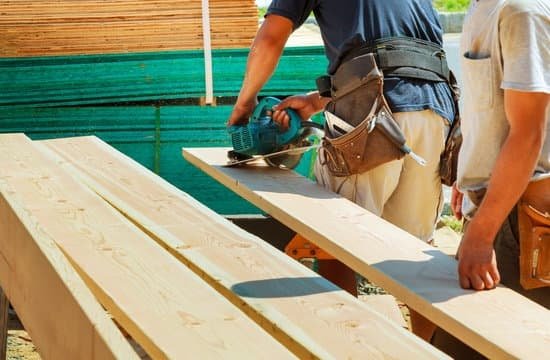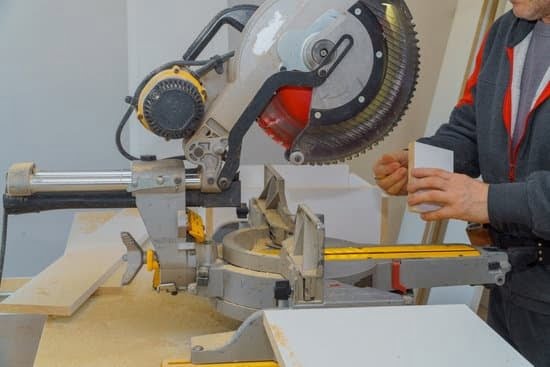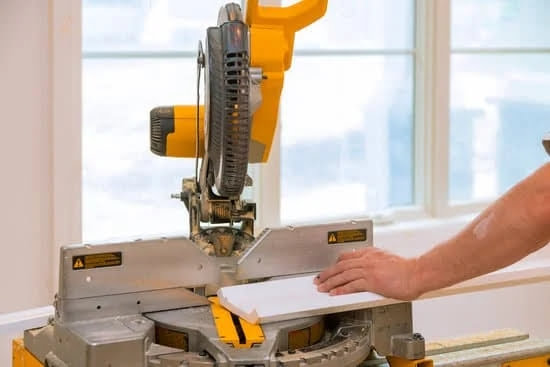Woodworking is a craft that requires precision, skill, and the right tools. Whether you are a seasoned woodworker or just starting out, having the essential tools in your woodworking shop can make all the difference in the quality of your projects. From measuring and marking to cutting and joinery, each tool plays a crucial role in enhancing your woodworking skills and efficiency.
In this article, we will explore the must-have tools for a woodworking shop. We will delve into various categories of tools such as measuring and marking tools, cutting tools, joinery tools, power tools, hand tools, safety equipment, organizational tools, and specialty tools. Each section will highlight the value of these tools in woodworking projects and recommend specific must-have items.
Accurate measuring and marking are foundational to any woodworking project. Without precise measurements and clean markings, achieving seamless results would be nearly impossible. That’s why our first section will focus on measuring and marking tools such as tape measures, squares, and marking gauges. These essential tools provide the precision needed to create well-crafted pieces.
Cutting is at the heart of woodworking projects. From shaping raw materials to creating intricate designs, having reliable cutting tools is vital. We will explore must-have cutting tools like table saws, circular saws, and hand saws that provide efficiency and accuracy in various woodworking tasks.
Joinery techniques are essential for creating strong connections between wooden pieces. The third section will cover the importance of joinery tools like chisels, dovetail saws, and mortise and tenon jigs. These must-have items allow woodworkers to achieve sturdy connections with seamless craftsmanship.
As we continue to explore the different categories of must-have woodworking tools in this article, it becomes evident that investing in these essentials not only enhances your woodworking journey but also ensures safety in your shop while providing organizational efficiency. So let’s dive deeper into each category to build the ultimate woodworking shop.
Measuring and Marking Tools
Measuring and marking tools are the foundation of any woodworking shop, as they ensure accuracy and precision in every project. These tools play a crucial role in achieving precise measurements, creating straight lines, and marking the wood for specific cuts and joinery. Without these essential tools, woodworking projects can become challenging and less accurate.
Accuracy is Key
In woodworking, accuracy is everything. Whether you are cutting a piece of wood to size or creating intricate joinery, having precise measurements is essential. Measuring tools such as tape measures, squares, and calipers are indispensable in a woodworking shop. A good quality tape measure allows you to accurately measure lengths and widths, while squares help ensure that your cuts are at right angles. Calipers provide precise measurements for inner and outer dimensions, allowing for more intricate work.
Making Straight Lines
Creating straight lines on your workpiece is crucial when it comes to making accurate cuts or shaping wood. Marking gauges are a valuable tool for this purpose. They allow you to create consistent parallel lines along the surface of the wood by adjusting the distance between the fence and the cutting edge. This ensures precision when laying out joints or making multiple cuts.
Additionally, a marking knife is another essential tool for fine woodworking. The sharp tip helps create crisp, accurate lines that are clear to follow when making intricate cuts or shaping details on the wood.
Recommendations
When it comes to measuring and marking tools, it’s important to invest in high-quality options that will stand up to repeated use and provide accurate results. Some recommended measuring tools include a steel tape measure with both imperial and metric markings for versatility, combination squares with adjustable blades for various layout tasks, and digital calipers that provide precise measurements quickly.
For marking tools, consider investing in a wheel marking gauge with interchangeable cutter heads for versatility in different applications. Also, look for a marking knife with a comfortable handle and a sharp, durable blade for accurate lines.
By equipping your woodworking shop with the right measuring and marking tools, you lay a solid foundation for accurate, precise, and successful woodworking projects. These tools not only enhance your craftsmanship but also save time and effort by ensuring accuracy from the beginning stages of your project.
Cutting Tools
When it comes to woodworking projects, having the right cutting tools is essential. These tools are the backbone of any woodworking shop and can make a significant difference in the quality and efficiency of your projects. Whether you are a beginner or an experienced woodworker, investing in high-quality cutting tools is crucial for achieving precise and clean cuts.
One must-have cutting tool for any woodworking shop is a table saw. This versatile tool allows woodworkers to make accurate rip cuts, crosscuts, and bevel cuts with ease. A circular saw is also an important addition to your arsenal of cutting tools. It offers portability and can handle various cuts, making it perfect for on-site work or projects that require maneuverability.
Hand saws are another essential cutting tool for woodworking projects. While power tools like table saws and circular saws offer convenience, hand saws provide precision and control. Back saws, panel saws, and coping saws are some common types of hand saws that every woodworker should have in their workshop. These tools are particularly useful for intricate or detailed work where accuracy is paramount.
In addition to these cutting tools, it’s important to have a selection of sharp and high-quality blades for each tool. A dull or poor-quality blade can result in rough cuts or damage to your material. Investing in good blades will not only improve the quality of your cuts but also prolong the lifespan of your cutting tools.
Having the right cutting tools in your woodworking shop sets the foundation for successful projects. With a table saw, circular saw, hand saws, and sharp blades at your disposal, you’ll be able to achieve precise cuts and fine craftsmanship in all your woodworking endeavors.
| Tool | Description |
|---|---|
| Table Saw | A versatile tool used for making precise rip cuts, crosscuts, and bevel cuts. |
| Circular Saw | A portable tool perfect for on-site work and various cutting tasks. |
| Hand Saws | Includes back saws, panel saws, and coping saws for precision and control. |
| Sharp Blades | High-quality blades that are essential for clean and accurate cuts. |
Joinery Tools
In woodworking projects, joinery plays a vital role in creating strong and seamless connections between different wood pieces. Without the right tools for joinery, achieving sturdy and aesthetically pleasing joints can be challenging. This is where joinery tools come into play, providing woodworkers with the means to create intricate joints that enhance the overall quality of their projects.
One must-have tool for joinery is a chisel. Chisels are versatile tools that allow woodworkers to precisely carve out material to create mortises or clean up joints. These handheld tools come in various sizes and shapes, allowing for a wide range of cutting applications.
Additionally, a dovetail saw is another essential tool for joinery. The fine teeth on this specialized saw enable woodworkers to make precise cuts needed for creating dovetail joints, which are known for their strength and aesthetics.
For those looking to save time and effort in creating joints, a mortise and tenon jig is an excellent investment. This tool helps ensure accuracy and consistency when creating mortise and tenon joints, which are commonly used due to their resilience under stress. By using a jig specifically designed for this purpose, woodworkers can achieve tight-fitting joints without the need for complex measuring or complicated setups.
Investing in these must-have joinery tools will greatly enhance your woodworking capabilities by allowing you to create strong and seamless connections in your projects effortlessly.
- Chisels: Versatile and precise tools that aid in carving out material for mortises or cleaning up joints.
- Dovetail saws: Specialized saws with fine teeth that enable precise cuts needed for creating dovetail joints.
- Mortise and tenon jigs: Tools designed to ensure accuracy and consistency when creating mortise and tenon joints.
By having these essential joinery tools in your woodworking shop, you can take your projects to the next level and achieve professional-quality results.
Power Tools
When it comes to woodworking, power tools are a game-changer. These tools not only make the process more efficient but also open up a world of possibilities for projects. Whether you are a professional woodworker or a DIY enthusiast, having the right power tools can greatly enhance your woodworking experience.
One must-have power tool for any woodworking shop is a drill press. This versatile tool allows for precise drilling and provides greater control compared to handheld drills. With different speed settings and adjustable depth stops, a drill press is perfect for tasks such as drilling holes, counterboring, and sanding.
Another essential power tool is a router. A router can be used for various woodworking techniques such as shaping edges, creating decorative grooves, and making intricate cuts. It offers precision and control, allowing woodworkers to create intricate designs with ease. Additionally, routers come with different types of bits that can be used for specific purposes like creating mortises or dadoes.
A random orbital sander is another power tool that every woodworking shop should have. This tool combines both rotary and orbital motions to provide a smooth and swirl-free finish on wood surfaces. The random motion ensures that the sanding scratches are less noticeable, resulting in professional-looking finishes.
To ensure safety while using power tools, it is crucial to follow proper safety precautions such as wearing protective goggles and gloves, ensuring the workspace is well-lit and clutter-free, and familiarizing yourself with the tool’s user manual.
Hand Tools
Hand tools are an essential component of any woodworking shop, offering a level of precision and craftsmanship that power tools cannot always achieve. These tools allow woodworkers to carefully shape, carve, and refine their projects with a level of control unmatched by their mechanical counterparts. Whether you’re a beginner or an experienced craftsman, having the right hand tools in your woodworking shop is crucial for achieving professional-grade results.
One must-have hand tool for any woodworker is the hand plane. Hand planes allow for precise shaping, smoothing, and leveling of wood surfaces. They come in various sizes and designs, each suited for different tasks such as flattening rough stock or creating moldings. A high-quality hand plane can make all the difference in achieving a smooth surface without tear-out or other imperfections.
Carving tools are another essential set of hand tools for woodworking enthusiasts. These specialized tools are designed specifically for carving intricate details and shaping wood into ornate designs. From gouges to chisels, carving tools provide woodworkers with the ability to add personalized touches to their projects and unleash their creativity.
In addition to hand planes and carving tools, every woodworking shop should be equipped with a reliable coping saw. This versatile saw is perfect for making intricate curved cuts, allowing craftsmen to create detailed patterns and shapes in their workpieces. With its thin blade and ability to rotate freely within its frame, a coping saw is an indispensable tool when it comes to precision cutting in woodworking.
| Hand Tool | Primary Use |
|---|---|
| Hand Plane | Shaping, smoothing, and leveling wood surfaces |
| Carving Tools | Carving intricate details and shaping wood into ornate designs |
| Coping Saw | Making intricate curved cuts and creating detailed patterns in wood |
By investing in these precision hand tools, you will not only enhance the quality of your woodworking projects but also develop a stronger connection with your craft. Hand tools offer a unique experience that power tools cannot replicate, allowing you to feel the grain of the wood under your fingertips and work with a level of detail that exudes craftsmanship.
So whether you’re embarking on a small DIY project or tackling a larger woodworking endeavor, make sure to prioritize the inclusion of these essential hand tools in your collection.
Safety Equipment
Importance of Safety in a Woodworking Shop
In any woodworking shop, safety should be a top priority. Working with sharp tools and heavy machinery can pose serious risks if proper safety measures are not taken. It is essential to protect both yourself and your projects by investing in the right safety equipment.
Essential Safety Equipment
When it comes to safety equipment, there are a few essentials that every woodworker should have in their shop:
- Safety Glasses: Woodworking involves cutting, shaping, and sanding wood, which can produce flying debris that may cause eye injuries. Safety glasses offer protection against these hazards and should always be worn while working in the shop.
- Ear Protection: The constant noise produced by power tools can lead to hearing damage over time. Wearing ear protection such as earmuffs or earplugs can significantly reduce the risk of long-term hearing loss.
- Dust Masks: Woodworking generates a substantial amount of fine dust particles that can be harmful when inhaled. Dust masks or respirators help filter out these particles and prevent respiratory issues.
- Protective Clothing: Avoid loose-fitting clothing that may get caught in machines or tools, as well as open-toed shoes that leave your feet vulnerable to injury from falling objects or sharp materials. Wearing snug-fitting clothes and closed-toe shoes will help minimize these risks.
- Fire Extinguisher: With the potential for sawdust and flammable chemicals present in any woodworking shop, it is crucial to have a fire extinguisher easily accessible.
By investing in and utilizing this safety equipment, woodworkers can reduce the risk of accidents or injuries during their projects, ensuring a safer working environment for themselves and protecting the integrity of their projects.
Maintaining Safe Habits
Besides having the necessary safety equipment, it is equally important to practice safe habits in the woodworking shop. Some essential tips to follow include:
- Familiarize yourself with the owner’s manual and safety instructions for all tools and equipment before using them.
- Keep your work area clean and organized to avoid trips, falls, or accidents caused by clutter.
- Use push sticks or feather boards when operating power tools like table saws or routers to keep your hands safe from sharp blades.
- Never rush through a project – take your time, remain focused, and do not compromise safety for speed.
- Regularly inspect tools and machinery for any damage or wear that may affect their performance or safety features.
Following these practices will help maintain a safe working environment while enabling woodworkers to enjoy their craft without unnecessary risks. Remember, protecting yourself and your projects is key to building a successful woodworking shop.
Organizational Tools
In order to maintain a successful and efficient woodworking shop, it is crucial to have the right organizational tools in place. Organizational tools not only help keep the workspace clean and tidy, but they also contribute to improved efficiency and productivity. In this section, we will discuss the significance of organizational tools in a woodworking shop and recommend must-have items that can make a significant difference.
One of the most important organizational tools for any woodworking shop is a tool chest. A tool chest provides a safe and secure place to store all your hand tools, power tools, and accessories. It keeps everything organized and easily accessible, saving you time that would otherwise be wasted searching for misplaced tools. Look for a tool chest with multiple compartments or drawers that can accommodate different sizes of tools and equipment.
Another essential organizational tool in a woodworking shop is pegboard. Pegboards are great for keeping frequently used hand tools within reach. By hanging your tools on hooks or pegs, you can easily see what you have available and quickly grab what you need without rummaging through drawers or toolboxes. Additionally, pegboards are customizable, allowing you to arrange your tools in a way that works best for you.
Storage bins are also highly recommended for organizing smaller items such as screws, nails, bolts, and other hardware essentials. These bins can be labeled according to their contents, making it easy to find exactly what you need when working on a project. Utilizing storage bins not only declutters your workspace but also ensures that all those small components are kept safely together in one place.
By investing in these essential organizational tools like tool chests, pegboards, and storage bins, you will create an efficient and well-organized woodworking shop. Having everything in its place not only saves you time but also prevents unnecessary frustration when trying to locate specific items or completing tasks efficiently. So take the time to set up your woodworking shop with appropriate organizational systems; it will undoubtedly pay off in terms of increased productivity and enjoyment of woodworking projects.
Specialty Tools
Woodworking enthusiasts looking to take their projects to the next level should consider incorporating specialty tools into their woodworking shop. These tools provide unique capabilities that can enhance the quality and intricacy of woodworking projects. While not essential for basic woodworking, these specialty tools offer the opportunity to add one-of-a-kind details and refine craftsmanship.
One must-have specialty tool is the spokeshave, which is a hand tool used for shaping and chamfering curved surfaces on wood. It allows woodworkers to create smooth, rounded edges or concave shapes with precision. Additionally, a biscuit joiner is an excellent tool for creating strong joints in woodworking projects.
This tool uses a small circular saw blade to cut slots in two separate pieces of wood, which are then joined together using biscuits and glue. The result is a secure joint that adds stability and durability to furniture or cabinetry.
Another valuable specialty tool is the router plane. This versatile hand tool is used for fine-tuning the depth of grooves or recesses in woodworking projects. It can also be used for leveling surfaces or refining mortises. By allowing woodworkers to make accurate, controlled adjustments, the router plane ensures precise and professional-looking results.
While specialty tools are not essential for every woodworking project, they can significantly enhance capabilities and elevate craftsmanship. Incorporating tools like the spokeshave, biscuit joiner, and router plane into a woodworking shop opens up new possibilities for creativity and precision in woodworking projects. By investing in these specialty tools, woodworkers can expand their skills and achieve even more impressive results.
Conclusion
In conclusion, having the right tools in a woodworking shop is essential for any woodworking enthusiast. The tools mentioned throughout this article are vital for enhancing woodworking skills and efficiency. From measuring and marking tools to cutting tools, joinery tools, power tools, hand tools, safety equipment, organizational tools, and specialty tools, each category plays a crucial role in the woodworking process.
Accurate measuring and marking tools provide a precision-based foundation for all woodworking projects. Investing in tape measures, squares, and marking gauges ensures that measurements are precise and markings are accurate. Cutting tools such as table saws, circular saws, and hand saws are the backbone of woodworking projects. These high-quality cutting tools enable clean and precise cuts that are essential for creating well-crafted pieces.
Joinery tools like chisels, dovetail saws, and mortise and tenon jigs ensure strong and seamless connections in woodworking projects. These tools allow woodworkers to create precise joinery techniques that result in sturdy constructions. Power tools offer efficiency and versatility in woodworking. Tools like drill presses, routers, and random orbital sanders provide speed and accuracy to various tasks.
Hand tools bring precision and craftsmanship to the woodshop. Hand planes, carving tools, coping saws – these must-have hand tools allow woodworkers to add intricate details to their projects with exceptional precision. Safety should always be a top priority in any woodworking shop. Wearing safety glasses, using ear protection, and dust masks protects both the woodworker’s health and the integrity of their projects.
Organizational tools ensure that the workspace remains neat and efficient. Tool chests keep everything organized while pegboards help display frequently used equipment within easy reach. Storage bins offer a convenient way to store smaller items without cluttering up valuable workspace.
Lastly, specialty tools can take woodworking capabilities to the next level. Spokeshaves allow for unique curved edge shaping while biscuit joiners make joining pieces together a breeze. Router planes provide precise depth control for perfect dadoes and grooves.
Frequently Asked Questions
What is the tool most used in your woodworking shop?
The tool that is most frequently used in my woodworking shop is the table saw. This versatile machine allows me to make precision cuts, rip boards to size, and create intricate joinery.
It serves as the backbone of many of my projects and I rely on it for a wide range of tasks. From cutting large sheets of plywood to shaping smaller pieces of wood, the table saw provides the power and accuracy I need to achieve professional results.
What every wood shop should have?
Every wood shop should have a sturdy workbench. A workbench is an essential piece of equipment that serves as a solid foundation for various woodworking tasks. It offers a flat and stable surface for assembling projects, performing handwork such as sanding or carving, and clamping components securely in place.
A well-designed workbench will also include features like vices or dog holes that enhance its functionality by providing additional holding options. Regardless of the size or complexity of your wood shop, a reliable workbench is crucial for completing projects efficiently and effectively.
What is the essential tool for every woodworker?
The essential tool for every woodworker is undoubtedly the hand plane. While power tools offer speed and efficiency, there is something irreplaceable about the craftsmanship achieved with a hand plane. A quality hand plane allows you to refine surfaces, flatten boards, and shape edges with unmatched precision and control.
Whether you are smoothing out rough lumber or creating beautiful chamfers, the combination of skill and technique required when using a hand plane fosters a deep connection between craftsman and material. Its versatility makes it indispensable in any woodworker’s arsenal, providing opportunities for fine-tuning details and achieving impeccable results that cannot be replicated by machines alone.

Hi everyone! I’m a woodworker and blogger, and this is my woodworking blog. In my blog, I share tips and tricks for woodworkers of all skill levels, as well as project ideas that you can try yourself.





